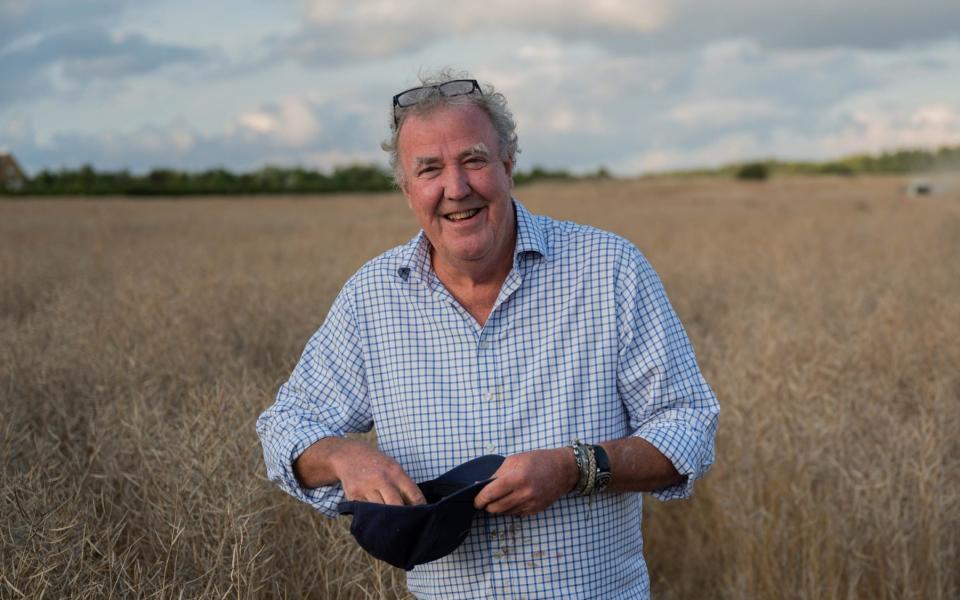Jeremy Clarkson says he has stopped growing food in some of his fields because it is more profitable to take government eco handouts.
Since Brexit, farmers no longer receive subsidies for producing food, yet they can still get payments for environmental schemes under the Sustainable Farming Incentive (SFI).
Clarkson, who has owned his Diddly Squat farm in Chipping Norton for 11 years, warned British farmers were being incentivised not to produce food, meaning more had to be imported from abroad.
Writing in the Sunday Times Magazine, he said: “I have signed up to the government’s eco-friendly grant scheme and will be planting things that aren’t food in three fields.
“They’re good for the soil and they’re good for my bank balance. But it means I’m not growing stuff people can eat.
“I know one chap who has taken 60 per cent of his farm out of food production and he’s not alone. So yippee. All that stored carbon and all of that fixed-in nitrogen.
“But what if you want some bread? You’ll have to get a loaf made from wheat that was grown abroad. And how’s that good for global warming?”


Under the SFI, farmers can receive money for turning their arable and horticultural fields into bee friendly wildflower meadows, grassland or planting species that can feed winter birds.
The scheme has proved so popular to struggling farmers that last month the government was forced to issue a crackdown, warning that growers could only take 25 per cent of their land out of direct food production for environmental projects.
The government said there was evidence of farmers taking large areas of their land away from food production, with the scheme “being used more than intended.”
Farming Minister Mark Spencer said the initiative: “was always intended to be implemented on smaller areas of land”.
He added: “Food production is the primary purpose of farming and we are taking action to clarify this principle.”
The government has received more than 15,000 applications and issued over 14,000 agreement offers and said the vast majority of land in the scheme continues to produce food “in a more sustainable, resilient way that’s good for both food production and the environment”.
Reliance on imports
In an interview with The Telegraph this week, Kaleb Cooper, Clarkson’s farm manager, warned there was too much reliance on cheap imports, and not enough support for growers.
He argued that if Britain continues to fail to produce sufficient food it could lead to internal conflict should there be another pandemic or global war.
“What happens? England’s at war with itself,” he said.
The government said it was committed to British farmers producing at least 60 per cent of the food eaten in the country.

